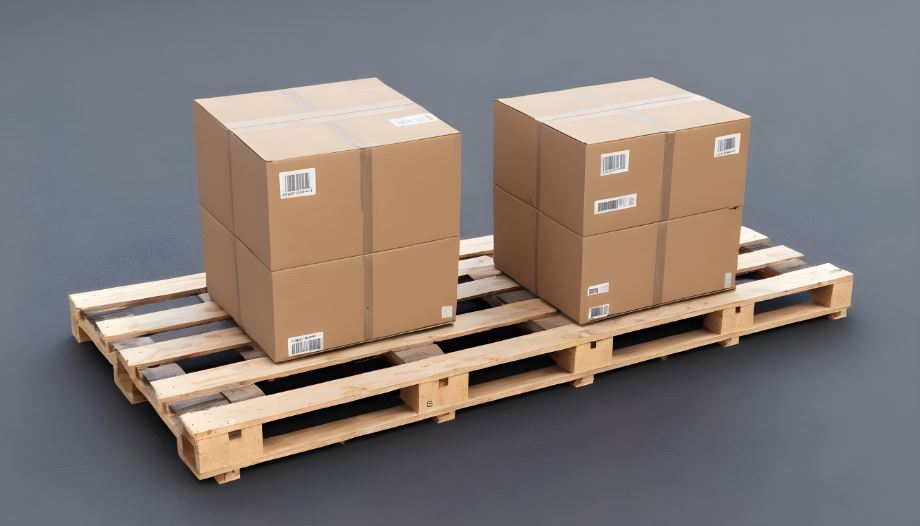Introduction
In the sprawling landscape of e-commerce, Amazon stands as a colossus, offering myriad opportunities for sellers to thrive. Among these opportunities, Amazon return pallets emerge as a hidden gem, offering resellers a pathway to significant profits through the resale of returned goods. This guide delves into the intricacies of leveraging Amazon return pallets, from sourcing strategies to maximizing profitability.
Understanding Amazon Return Pallets
Amazon return pallets are bulk collections of returned items. These returns, often due to reasons like buyer’s remorse or minor defects, are consolidated by Amazon into pallets and sold at a fraction of their retail value. For resellers, these pallets represent a goldmine, offering a diverse array of products at steep discounts.
The Appeal to Resellers
The allure of Amazon return pallets lies in their potential for high profit margins. Resellers can acquire goods at significantly reduced prices and resell them, often after minor refurbishments, for a substantial markup. This model not only promises lucrative returns but also contributes to sustainability by giving a second life to returned products.
Sourcing Amazon Return Pallets
Securing Amazon return pallets requires diligence and a strategic approach. Here are the primary channels for sourcing these pallets:
- Liquidation Websites: Platforms like Direct Liquidation and Liquidation.com partner with Amazon to sell return pallets. These websites host auctions and direct sales, offering resellers a transparent way to purchase pallets.
- Amazon Liquidation Auctions: Amazon collaborates with auction platforms to sell return pallets directly to resellers. Participation in these auctions often necessitates registration and adherence to specific bidding rules.
- Local Liquidators: Building relationships with local liquidation companies can provide direct access to Amazon return pallets. These companies purchase pallets in bulk and resell them, sometimes offering more favorable terms or logistics options.
Benefits and Challenges
Benefits
- Cost-Effective Inventory: The acquisition cost of return pallets is a fraction of the retail price, allowing for potentially high profit margins.
- Diverse Product Range: Pallets can contain an array of items, from electronics to home goods, offering resellers a broad inventory spectrum.
Challenges
- Variable Condition: The condition of items can range widely, with some products requiring repairs or refurbishment.
- Unpredictability: The exact contents and condition of a pallet are often unknown until delivery, adding a layer of risk to the investment.
- Logistical Demands: Managing, storing, and processing bulk items necessitate significant logistical planning and resources.
Maximizing Profits from Amazon Return Pallets
Turning a profit from Amazon return pallets involves more than just reselling items. Here are strategies for success:
- Selective Sourcing: Focus on pallets that align with your expertise and market demand. Utilize available data and descriptions to gauge the potential value of a pallet.
- Thorough Inspection: Upon receipt, inspect and categorize items based on their condition and resale value. This step is crucial for identifying which items can be sold as-is, which need refurbishment, and which are unsalable.
- Efficient Refurbishment: For items that require it, a streamlined refurbishment process can significantly enhance their value. Establish a reliable system for repairs, cleaning, and repackaging.
- Diversified Sales Channels: Exploit various sales channels, including online marketplaces like eBay or Etsy, local flea markets, and direct sales through social media platforms, to maximize exposure and profitability.
Navigating the Buying Process
Purchasing Amazon return pallets is a multifaceted process, involving bidding, payment, and logistics. Familiarize yourself with the terms of sale, including any buyer’s premiums, shipping costs, and return policies. Planning for the receipt and storage of bulk items is also essential, as is arranging for their transportation from the liquidator to your storage facility.
Legal and Ethical Considerations
While reselling items from Amazon return pallets is generally permissible, resellers must navigate several legal and ethical considerations. Accurately representing the condition of items, respecting intellectual property rights, and adhering to environmental regulations are paramount. Ethical reselling practices not only ensure compliance but also build trust with customers and contribute to a sustainable business model.
Conclusion
Amazon return pallets present a compelling opportunity for resellers willing to navigate their complexities. By understanding the sourcing process, recognizing the inherent benefits and challenges, and employing strategies to maximize profitability, resellers can capitalize on the potential of these pallets. Success in this venture requires a blend of diligence, strategic planning, and adaptability. With the right approach, Amazon return pallets can be a lucrative and sustainable component of any reselling business.
